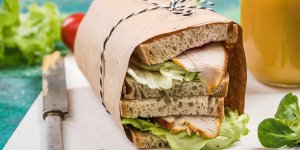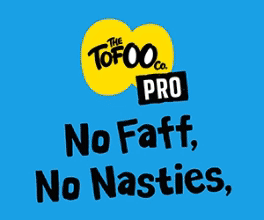UKHospitality: Labels and legislation

Kate Nicholls, chief executive of UKHospitality, is pushing for a delay to the implementation of new labelling legislation...
At the time of writing, the new omicron variant of Covid-19 has thrown December trading even further into doubt. What the next few weeks and months hold, at this point, remains to be seen. What is more certain, however, is that April 2022 will see calorie labelling legislation introduced in England.
We continue to remind the government that the timing of these mandatory requirements couldn’t be much worse, with thousands of hospitality businesses still battling to survive and facing the ongoing challenges of labour shortages and ever-rising costs. Yet, as things stand, mandatory labelling is set to hit us just as we see a return to a 20% VAT rate, unless the government listens to our case and keeps the lower 12.5% permanently.
Let’s not forget, also, that as recently as October, many hospitality businesses had to ensure compliance with new allergen labelling requirements on pre-packed for direct sale food, the so-called Natasha’s Law. These are some of the reasons why UKHospitality is calling for calorie labelling legislation to be delayed, and we raised our concerns cogently and unreservedly back in June, in response to a Department of Health and Social Care (DHSC) call for views, as well as back in 2020.
The new labelling guidance applies to any ‘large business’ – those with more than 250 employees – where food or drink is prepared ‘for immediate consumption by the person who buys it’. And the ‘large businesses’ required to do all this include not just restaurants, cafés, takeaways, bakeries and caterers, but also supermarkets, entertainment venues (for example, cinemas), hotels and workplaces where large catering companies provide food and drink. Online sales are also covered, including those by third-party takeaway platforms. Irrespective of size, these will be required to display calorie information on food and drink items sold by businesses in scope of the policy.
That means unpackaged items (for example, restaurant meals), food pre-packed for direct sale (such as a café sandwich made and packaged on-site), or items packaged at the customer’s request (say, a bakery hot sausage roll) will all fall into scope. Sides and toppings (but not condiments) on menus will also require calorie labels.
There are, however, some exemptions. It won’t include businesses with fewer than 250 employees; educational institutions for pupils aged 18 and under; workplace canteens where food and drink are provided in-house solely for employees; health and social care settings where food is provided solely for patients or residents; drinks that are more than 1.2% alcohol by volume; and loose fruit and vegetables.
As we all work to achieve compliance between now and next April, we’re here to help. We have information on our website for members, which is always up to date with the latest guidance, and we’ll continue to work towards getting clarification on technical questions posed by operators to create member guidance. We’re doing this through meetings and continuing dialogue with DHSC officials.
Our key aim, though, is to secure that all-important delay to the introduction of this legislation. By postponing calorie labelling, the government would give thousands of businesses vital extra time in which to recover fully from the devastating impact of Covid-19. Introduce it next April as planned, and the legislation could just be the extra burden that means some will never recover.








